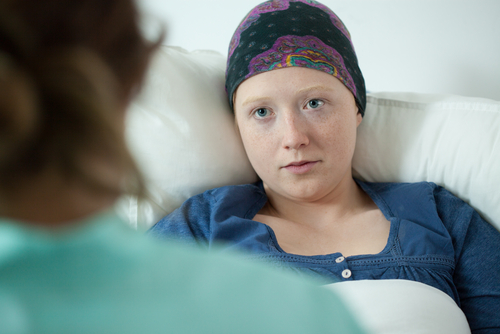 The U.S. Food and Drug Administration (FDA) attributed the Fast Track development program designation to Immunomedics’ sacituzumab govitecan, the company’s main antibody-drug conjugate (ADC).
The U.S. Food and Drug Administration (FDA) attributed the Fast Track development program designation to Immunomedics’ sacituzumab govitecan, the company’s main antibody-drug conjugate (ADC).
Sacituzumab govitecan is a potential treatment for patients with triple-negative breast cancer (TNBC) for whom previous therapies for metastatic disease have not succeeded.
This new antibody-drug conjugate conjugates the fairly toxic drug SN-38 site-specifically and with a high ratio of drug to antibody. SN-38 is the active component of irinotecan (Camptosar), that has been used to treat some solid cancers, mainly metastatic colorectal cancers, as a part of combined therapies.
Additionally, this immunotherapeutic drug is composed of hRS7, a humanized antibody that binds to the trophoblast cell-surface antigen (TROP-2), also known as the epithelial glycoprotein-1 antigen (EGP-1). TROP-2 is expressed by many human tumors, such as cancers of the breast, cervix, colon and rectum, lung, pancreas and prostate, but with only limited expression in normal human tissues.
The antibody has the capacity to become internalized into cancer cells after binding to TROP-2, making it a suitable candidate for the delivery of cytotoxic drugs. Preclinical studies have shown that sacituzumab govitecan delivers a much higher quantity of SN-38 to human pancreatic tumor xenografts when irinotecan is not conjugated. Furthermore, in several animal models of human cancers, the use of antibody-drug conjugates can considerably increase survival and tumor regression.
Triple-negative breast cancer (TNBC) is a severe and deadly disease for which there are very few treatments available. TNBC includes breast tumors that are negative for estrogen and progesterone receptors and to human epidermal growth factor receptor 2 (HER2). Approximately 15-20% of all breast cancers that are invasive are classified as TNBC. Even though the initial response to chemotherapy is high in this cancer subtype, it carries an elevated recurrence rate and is probably the most complicated type of breast cancer to treat with success using current cytotoxic agents.
In this study, the recruited patients had an average of 4 previous treatments, including combinations of conventional and investigational compounds. To date, around 30% of the patients analyzed by computed tomography have responded positively to the therapy, with tumor sizes decreasing from 30% to 100%.
The most common toxic effect is neutropenia (reduction of neutrophils), which can be overcome by dose reduction or administration of myeloid growth factors.
“We are pleased to receive this Fast Track designation from FDA,” highlighted Cynthia L. Sullivan, President and Chief Executive Officer, in a press release. “We plan to discuss with FDA and our medical advisers the registration pathway for this valuable agent in breast cancer, and talks with potential licensing partners are continuing,” Ms. Sullivan reinforced. “We are close to completing enrollment of about 50 patients with metastatic TNBC, while we continue to study other indications as well,” added Ms. Sullivan.


